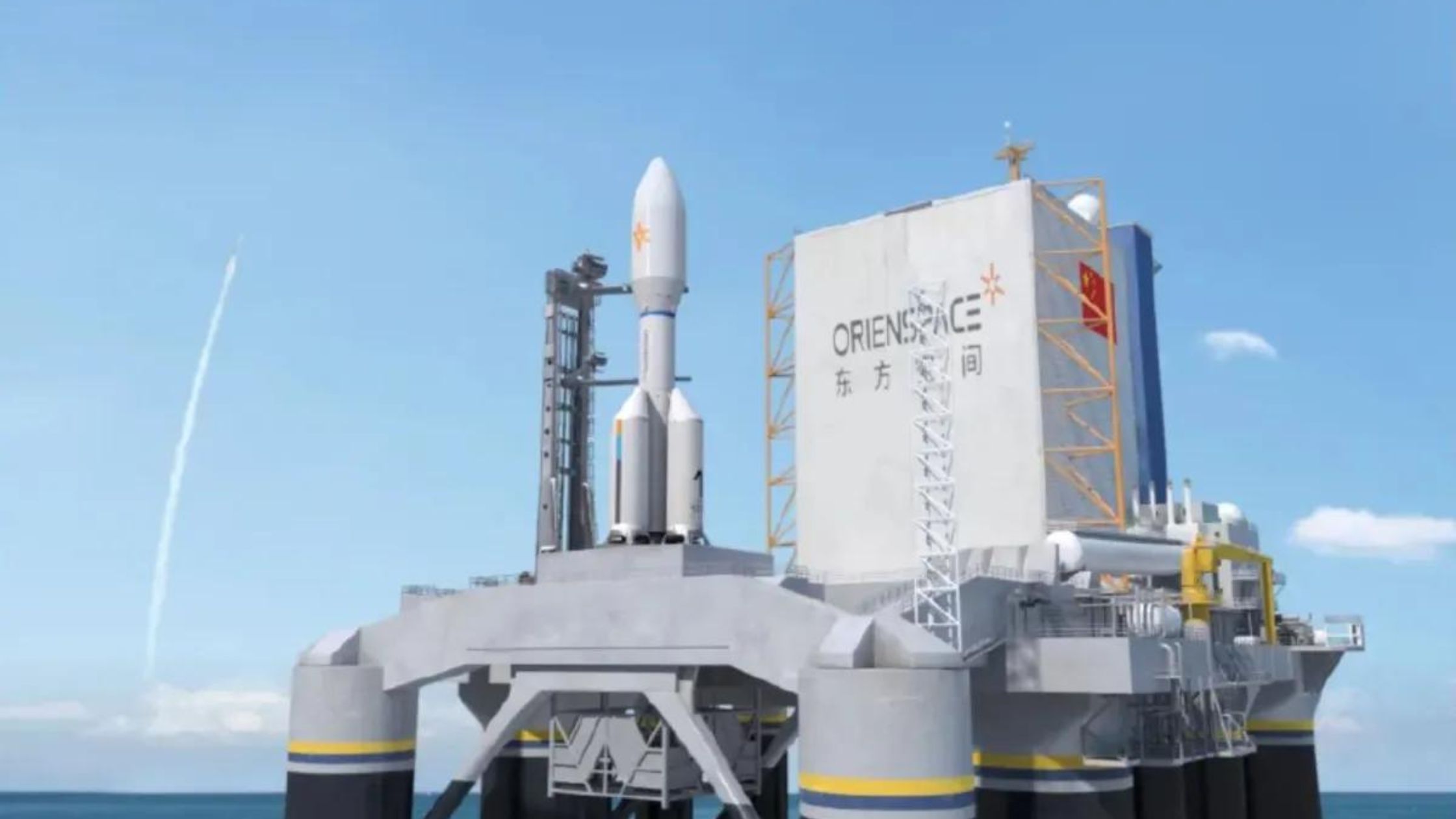AsiaTechDaily – Asia's Leading Tech and Startup Media Platform

Chinese Startup Orienspace Launches Gravity-1 Rocket in a Bid for Space
Orienspace, a Beijing-based startup, successfully launched the most powerful rocket developed by the Chinese private sector. The Gravity-1 rocket took off from a marine platform in the Yellow Sea. Traditionally, commercial launches have been dominated by the country’s state agencies, whereas Orienspace’s launch is a new era for private companies in the Chinese space sector.
The mid-sized Gravity-1 rocket soared into the skies from a ship off the coast of eastern Shandong province, delivering three remote-sensing satellites into orbit. This successful launch allows Orienspace to compete with established international players, exemplified by the likes of Elon Musk’s SpaceX.
Established in 2020 by former members of China’s state space agencies, Orienspace successfully realized its plan to launch the Gravity-1 rocket, initially scheduled for the latter half of 2023.
The rocket is the most powerful launch vehicle developed by a private Chinese enterprise with the capability to carry a payload of up to 6,500 kg (14,330 lb) into low Earth orbit.
By the year 2022, Orienspace had secured approximately $150 million in funding from investors, including names like Sequoia China and Matrix Partners China. The debut of Gravity-1 holds the promise of unlocking numerous commercial satellite launches within the private sector, especially targeting low- and mid-altitude orbits.
According to Orienspace’s CEO, the company has already received considerable orders for hundreds of satellite launches, underlining the market demand for such services. Gravity-1 can deploy up to 30 satellites in a single launch, offering operational efficiency and flexibility for satellite operators.
Orienspace claims that it can orchestrate a launch in less than seven days and, in certain cases, within a 24-hour timeframe. Furthermore, the rocket’s versatility, capable of being launched from a mobile sea platform, expands the potential launch sites and contributes to reducing risks associated with rocket debris.
The three satellites delivered to orbit during this mission were developed by Chang Guang Satellite Technology Co. and are designated for applications in meteorological analysis, weather forecasting, and disaster warning.
Orienspace’s co-chief Executive Officer, Yao Song, emphasized the advantages of water launches, citing increased flexibility for operators and reduced risks linked to rocket debris. Song highlighted the potential of the Gravity-1 rocket to diminish the cost of commercial space launches substantially.
China’s first attempt at commercial sea launches occurred in 2020 with the Long March 11, developed by the state. The strategic advantage of sea launches lies in their ability to mitigate the risk of rocket stages falling back to Earth in populated regions, enhancing safety and environmental considerations.
The remarkable inaugural flight of Gravity-1 solidifies Orienspace’s status as the fifth private Chinese company to operate its carrier rocket independently. This achievement places Orienspace in the esteemed company of other private entities in China’s space sector, including Space Pioneer, and LandSpace, Galactic Energy, i-Space as reported by Chinese state media.
Also Read:
- T-Hub Launches Space Tech Incubation Program to Support India’s Spacetech Sector
- China’s Ellipspace Receives 100 Million Yuan Funding for Satellite Innovation
- Singaporean Space Startup Zero-Error Systems (ZES) Raises $7.5M
- Gitai Gets ¥4 billion Funding to Develop Space Robots, Aims to Reduce Labor Costs by 100 Times
- Indonesian cold chain solutions provider Coldspace secures $3.8m in Seed funding





